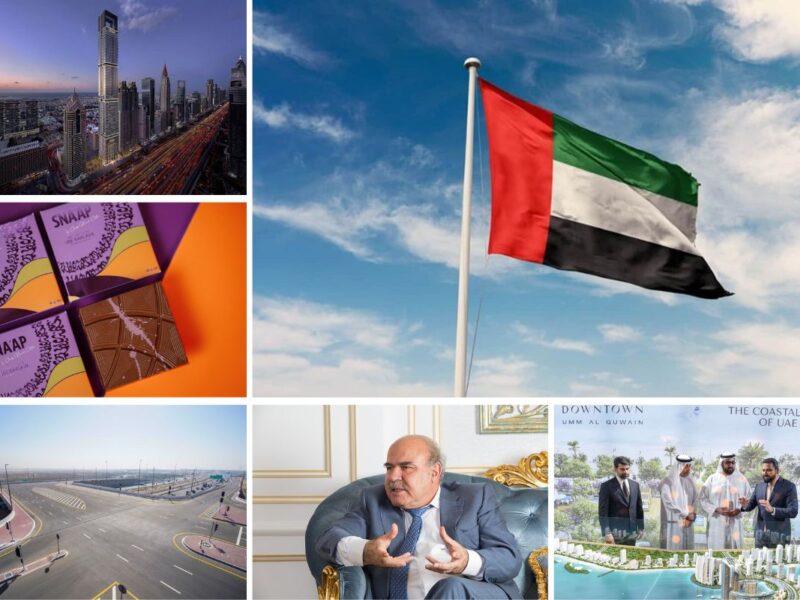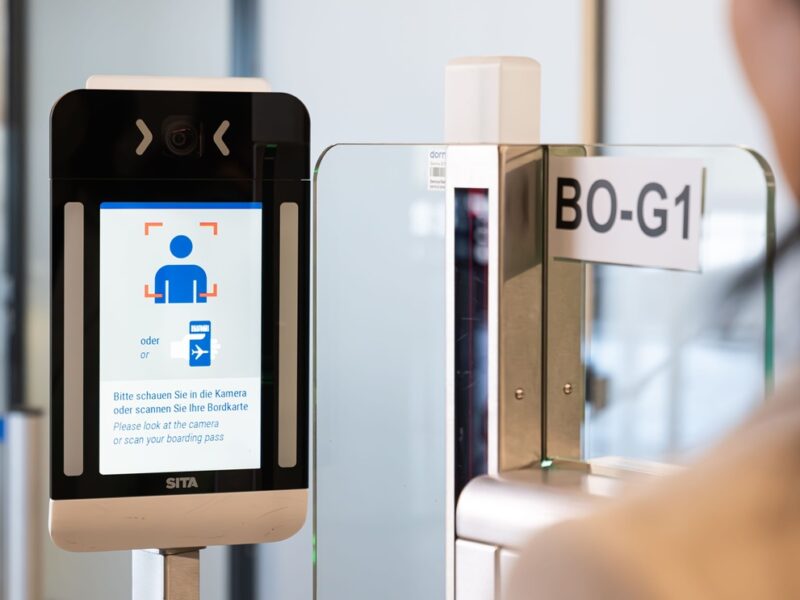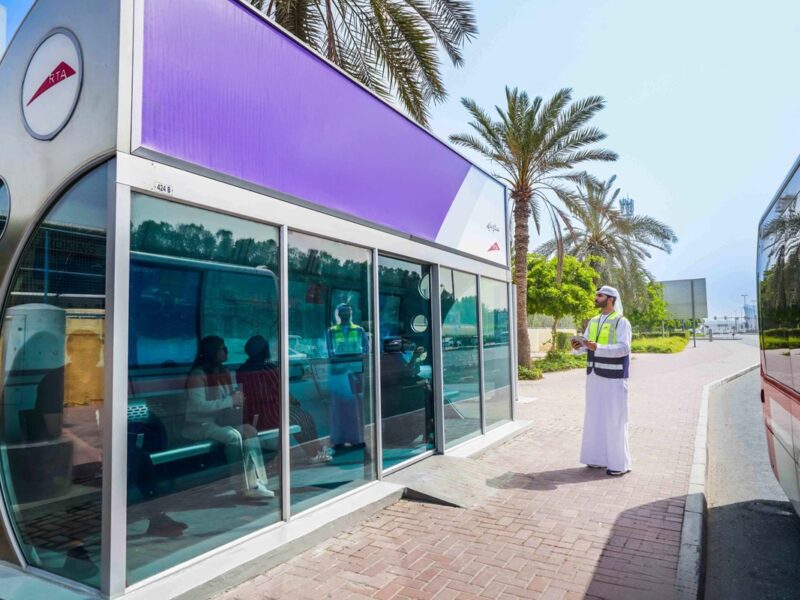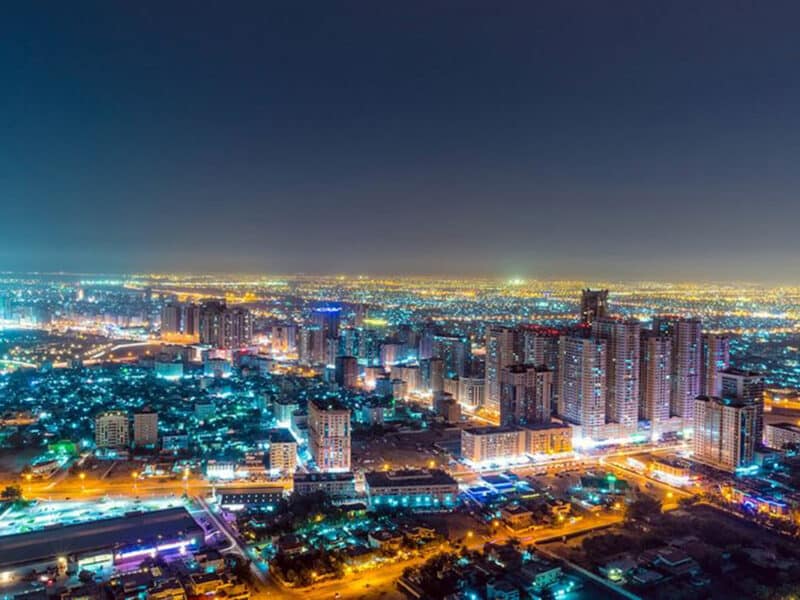The air cargo industry in the Middle East is certainly not for the fainthearted. Instead, this increasingly fertile market provides opportunities galore for those who are proactive enough to grab them with both hands, and take a lead in developing facilities and services which will shape this young industry further in years to come.
As one of the leading cargo handling companies in the region, Dnata Cargo does not shy away from innovating, diversifying and expanding its portfolio of services – keen to put its stamp on the development of the fast-growing industry in the Middle East. In operation for more than forty years, Dnata Cargo has been expanding its impressive range of cargo services along the way.
Formed in 1959 by the Dubai government to operate at Dubai International Airport, the Dnata acronym originally stood for ‘Dubai National Air Travel Agency’. With its immense growth and increasing service portfolio, the acronym itself has now become a household name for the regional industry. “Our company is now commonly known as ‘DNATA’ without referring to its original meaning anymore,” admits senior vice president of Dnata Cargo, Jean Pierre L. De Pauw with a smile.
Dnata presently consists of several divisions, with the cargo division falling under Dnata Airport Services, the sole ground handler at Dubai International Airport.
Servicing in excess of 100 airlines operating at the airport, and around 1000 cargo agents based in Dubai, the company’s reputation is well earned. Dnata Cargo is strategically located in every logistical hub of Dubai – from its Main Cargo Terminal (MCT) and Express Handling Centre (EHC) at Cargo Village, to the Free Zone Logistics Centre (FLC) at Dubai Airport Free Zone and the Free Zone Air Cargo Terminal (FACT) at Jebel Ali Free Zone. Combined, these four terminals alone handled 566,915 tonnes of cargo from April 2005 to March 2006.
De Pauw remembers the company’s early years, taking its baby steps in a slowly burgeoning cargo industry and its fast-track development ever since. “Since 1991, the year that we opened the cargo village in Dubai, it has been quite a ride,” he contemplates. “To be honest, we never had time to look back. During most years, we’ve had double digit growth, some years even more than 30%. Nobody in their wildest dreams would have predicted this kind of growth. We faced some challenges to keep pace with creating adequate and timely facilities and resources.”
It’s hard to believe that as recently as the mid-nineties, the north side of the airport was just a piece of desert. “I recall a brainstorming session with the DCA (Dubai Civil Aviation) on what we could do with this ‘spare’ land. One of the accepted ideas was to develop the north side of the airport for Russian and CIS business, and this resulted a few years later in the opening of Terminal 2 (for passenger) and FLC I (for cargo),” says De Pauw.
As the Russian market tapered off, Dnata Cargo started tapping the charter markets and with this cargo flows to Africa, Afghanistan and Iraq also developed. De Pauw points out that DCA was fast recognising the growing importance of Dubai as a regional distribution hub in both sea and airfreight. The increasing recognition of the warehousing and distribution opportunities for high value and perishable goods, coupled with complementing the sea and road freight opportunities created by Jebel Ali Free Zone, eventually resulted in the creation of the Dubai Airport Free Zone and the FLC soon after. “FLC and its concept, now eight years old already, is today a well established entity with a regular following of airlines and agents,” he says.
Infact the FLC is claimed to be the first low-cost terminal at a major airport. Since then, it has undergone an impressive multi-million dollar expansion to be barely recognisable in terms of the facilities it offers. Dnata Cargo now operates three such Free Zone Logistics Centres; FLC I facility (since 1999), FLC II (since 2002), and more recently FLC III in May this year. “These facilities cover a warehouse area of some 35,000m2 and also offer close to 7000m2 of office space to both airlines and agents operating from these facilities,” elaborates De Pauw.
Comprising of 16,000m2 of warehousing and 10,000m2 of office space, the newest unit, FLC III, is a one-stop shop with a fully-automated air cargo storage and retrieval system handling facility and around the clock government import-export services. FLC III more than triples the annual throughput capacity of the FLC complex to 500,000 tonnes, raising the total complex facilities to 47,000m2 of warehousing and offices.
With the facilities in place to set up Dnata Cargo’s expected growth until 2010 and beyond, the company is looking forward to a promising future. “Predictions are that with the buoyant and ever expanding city of Dubai and the booming region, air cargo will also continue growing and we are prepared for it,” De Pauw says confidently.
Indeed, as part of preparing for this bright future, Dnata Cargo has recently renamed all of its cargo facilities as ‘Freightgates’ to develop a new consistent corporate identity for its portfolio of terminals. Starting with FreightGate 1 at the Main Cargo Terminal at Dubai Airport, the other terminals are FreightGate 2, the Express Handling Centre at Dubai Cargo Village; FreightGate 3, the Economy Cargo Terminal at the FLC; FreightGate 4, the Agents’ Terminal at the FLC; FreightGate 5, the Premium Cargo Terminal at the FLC; and FreightGate 6, the Offline Terminal at Jebel Ali Free Zone.
“In total we operate six FreightGates, two at the Cargo Village, three at DAFZ and one at JAFZ. Together they handled around 600,000 tonnes of air cargo last year. Their annual throughput capacity is currently 925,000 tonnes with a total warehousing space of more than 65,000m2,” says De Pauw. He believes strongly that both the spare capacity currently available together with opportunity of adding extra capacity through further automation will be able to accommodate Dnata Cargo’s growth plans for the next several years. After that of course, the potential to grow even further will become a reality due to the massive Dubai World Central (DWC) development, Dubai’s champion project of a logistics community built around what is expected to be the biggest airport in the world. “The new airport in Jebel Ali will provide us with additional opportunities,” De Pauw elaborates.
“We see Dubai World Central in general, and particularly Dubai Logistics City, as a fantastic opportunity for everyone to create new products and attract new business, besides the important other aspect of ensuring that Dubai has enough capacity to grow its airline industry, now and in the future.” With the DWC to count as FreightGate 7 of Dnata Cargo’s empire, the company’s unrelenting growth can only be guaranteed.
Looking back, to say times have changed for this ambitious cargo handler would be a huge understatement. “Dnata has come along way from its early days, where all airport functions were performed by Dnata, where all passenger tickets and all airway bills were executed by Dnata and where all airlines were represented by Dnata as their general sales agent,” De Pauw muses.
“Today, Dnata Airport Services in particular has evolved and is mainly specialised in airport handling with services at several airports across the world and expanding. For Dubai in particular, our contribution has been significant, the many services we offer are largely unmatched in our industry, local and international.”
The key to Dnata’s success appears to be a combination of factors which have driven the company to its position in the industry today. “Dnata no doubt has benefited from various airport infrastructure investments and the explosive growth of Dubai itself,” says De Pauw modestly. “When combined with Dnata’s drive for innovation resulting in often unique service offerings to the local freight industry, we can only continue to go from strength to strength.”
FreightGate 1: Main Cargo Terminal, Dubai International Airport
The terminal provides general and specialised storage areas, with an automated handling system and fleet of railed and free-running vehicles ensure that cargo is quickly and safely stored and retrieved. The airport cargo complex and the sea ports are free zones, permitting fast handling and minimising documentation.
With a capacity for up to 450,000 tonnes per year, the terminal features a number of facilities, including a well-equipped special storage, ETV Systems, a number of build-up and break-down stations, TVs, hydraulic-powered truck docks, and sea air docks. Other facilities include chilled and freezer storage areas, special storage areas for vulnerable and valuable items, dangerous goods and live animals, plus a dedicated apron area for up to four wide-bodied aircraft.
FreightGate 2: Express Handling Centre (EHC), Dubai Cargo Village
The first of its kind in the Middle East region, EHC is designed to handle approximately 3.1 million express and mail parcels, meeting the increasing demand of express and courier operators. The US$5.5 million facility occupies an area of 4000m2, housing Dnata counters, customs and police units, in addition to dedicated and individual office and warehouse spaces offered to Express and Mail companies. EHC also extends its expertise to express perishable handling at its cargo terminals, including special thermal blankets used to maintain temperatures of perishable products during the short handling process between the aircraft and the cargo terminals.
FreightGate 3 – Economy Cargo Terminal, Free Zone Logistics Centre (FLC)
FreightGate 4 – Agents Terminal at FLC
FreightGate 5 – Premium Cargo Terminal at FLC
Dnata’s FLC is a dedicated freighter terminal for both scheduled and charter operators, offering tailor-made, flexible, cost-effective handling options, as well as an efficient link between the free zone community and Dubai’s main cargo terminal in the cargo village.
The FLC, which also includes a docking area capable of handling up to 50 trucks, has been designated the DAFZ’s community service provider to act as a conduit for cargo between the aircraft and their own storage areas. It also provides a link to other terminals, such as the Dubai Air Cargo Terminal and the Emirates Cargo Centre. Some 200m2 in the FLC is dedicated to specialised storage facilities including cooler, freezer, vulnerable and valuable storage rooms.
FreightGate 6: Free Zone Air Cargo Terminal (FACT), Jebel Ali Free Zone
The off-line cargo terminal of Dubai airport, FACT, has expanded to include most major airlines. The facility has an identical functionality to the award-winning Dubai Air Cargo Terminal, providing many benefits to the over 5000 companies within the free zone. Enabling customers to dispatch and receive air cargo consignments virtually on their doorstep, companies profit from the resulting administration, time and cost savings.
Any consignment arriving at Dubai International Airport showing ZJF location identifier as the point of either origin or destination is now treated as transit cargo and bypasses storage, acceptance or delivery procedures. It is handled straight on or off the road feeder trucks to and from the FACT.
FreightGate 7
To be based at Dubai World Central International Airport (JXB), Dubai’s second airport is the region’s biggest aviation venture, with an estimated infrastructure costs of US$33 billion. When completed, JXB will have an annual capacity of 120 million passengers and more than 12 million tonnes of cargo. Together, Dubai Logistics City, JXB, Enterprise Park and Jebel Ali Port will form the integrated multi-modal logistics platform, based in a single-bonded free zone environment.







